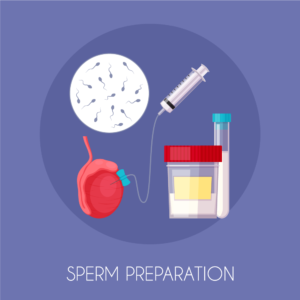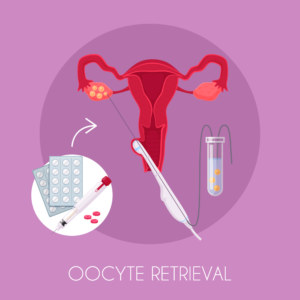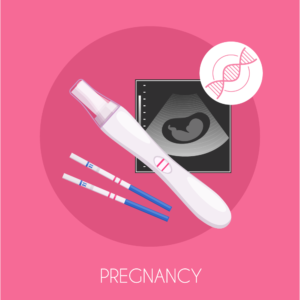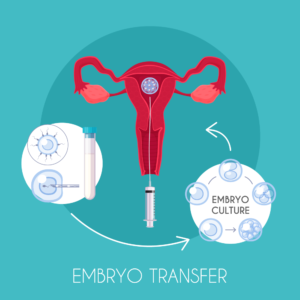The incidence of Female infertility is increasing rapidly because of the modern stressful lifestyle.
In today’s world more and more women are grasped by the curse of infertility. Particularly the numbers of age-related infertility are on surge as most of the women today prefer LATE MARRAIGEs or give priorities to their EDUCATION or their CAREER or they are Just Not Ready emotionally or financially to shoulder the responsibility of a child. It is important to understand that fertility declines as a woman age due to the normal age-related decrease in the number and quality of eggs that are left in their ovary.
The GOLDEN PERIOD of FERTILITY or the
best reproductive years if any women are in her 20s. Fertility gradually declines in the 30s, particularly after age 35. Each month that she tries, a healthy, fertile 30-year-old woman has a 20% chance of getting pregnant.
It is commonly understood that after menopause women are no longer able to become pregnant.
Women do not remain fertile until menopause. The average age for menopause is 47, but most women become unable to have a successful pregnancy sometime in their mid-40s. These percentages are true for natural conception as well as conception using fertility treatment, including in vitro fertilization (IVF).
The beginning of reproductive years in a female is marked by the onset of ovulation and menstruation which continues regularly each month till she attains menopause… Every month large numbers of Eggs mature in her ovary inside of fluid-filled “follicles.” At the beginning of each menstrual cycle when a woman is having her period, a hormone called FSH (follicle-stimulating hormones) is released from the pituitary gland, in the brain. This FSH is essential for the early development and growth of the follicles. Normally, only one of those follicles will reach maturity and release an egg (ovulate); the remainder gradually will stop growing and degenerate. If at the time of this egg release, sperms reach the fallopian tubes of female, one of the sperm fertilizes the egg to form the zygote. Pregnancy results when this embryo implants in the inner most lining of the uterus called endometrium. If pregnancy does not occur, the endometrium is shed as the menstrual flow and the cycle begins again.

EGG QUALITY-
Women become less likely to become pregnant and more likely to have miscarriages because egg quality decreases as the number of remaining eggs dwindle in number. These changes are most noted as she reaches her MID-TO-LATE 30s. Therefore, a woman’s age is the most accurate test of egg quality. An important change in egg quality is the frequency of genetic abnormalities called ANEUPLOIDY (too many or too few chromosomes in the egg).
WHAT CAUSES FEMALE INFERTILITY?
Female infertility factors contribute to approximately 50% of all infertility cases,
The common causes of female infertility include problems with ovary or fallopian tubes or uterus, or problems with the cervix.
DISTURBANCE IN H-P-O AXIS-

UTERINE DEFECT-
Ovulation Defects &Decrease Ovarian reserve
DAMAGE TO THE FALLOPIAN TUBES-
CERVICAL DEFECTS

WHAT IS THE TEST FOR INFERTILE WOMEN?
A couple is trying for years and unsuccessful in conceiving, both partners need to go through physical and medical testing to find out the reason for her infertility, so the IVF doctor can start the process immediately.
TESTS FOR OVARIAN RESERVE-
Women with poor ovarian reserve have a lower chance of becoming pregnant than women with normal ovarian reserve in their same age group. It can be predicted by following test-
High levels of FSH or low serum erogenous AMH level and Less AFC in ovary indicate that ovarian reserve of the women is low and treatment should be planned accordingly.
OVULATION TESTING
To confirm ovulation is better for fertilization, the ovulation predictor kit, blood tests, and ultrasound can be performed by the doctor.
LUTEAL PHASE TESTING
This predict the IMPLANTATION POTENTIAL of the uterus by checking the serum progesterone levels and possibly an endometrial biopsy.
ULTRASOUND TESTING
Ultrasound tests are used throughout fertility treatment and can help answer many questions. We use ultrasound for the following tests:

SONOSALPINGOGRAPHY (TUBAL PATENCY TEST)
DIAGNOSTIC HYSTEROSCOPY-
Hysteroscopy means examining the inside of the uterus, with a narrow telescope, to determine the cause of infertility. This procedure is performed under intravenous sedation to avoid discomfort. If something is found that could affect your fertility such as polyps, fibroids, adhesions or septum, it can be treated at the same time .
.
DIAGNOSTIC LAPAROSCOPY
Laparoscopy is the gold standard test to assess the patency of a fallopian tubes .It involves the insertion of a thin diagnostic telescope through the navel (belly button) and one to three small incisions elsewhere for manipulation under general anaesthesia. With the help of laproscopy,your doctor can diagnose and treat conditions that could be affecting your fertility such as fibroid uterus , endometriosis and pelvic adhesions.
who gives you complete care that makes your tough time even positive and relaxing.
Our IVF hospital features State of the art infrastructure, patient-friendly environment, and modern most advanced IVF and Andrology Laboratory as well as equipment leading to increase chances of conceiving.
